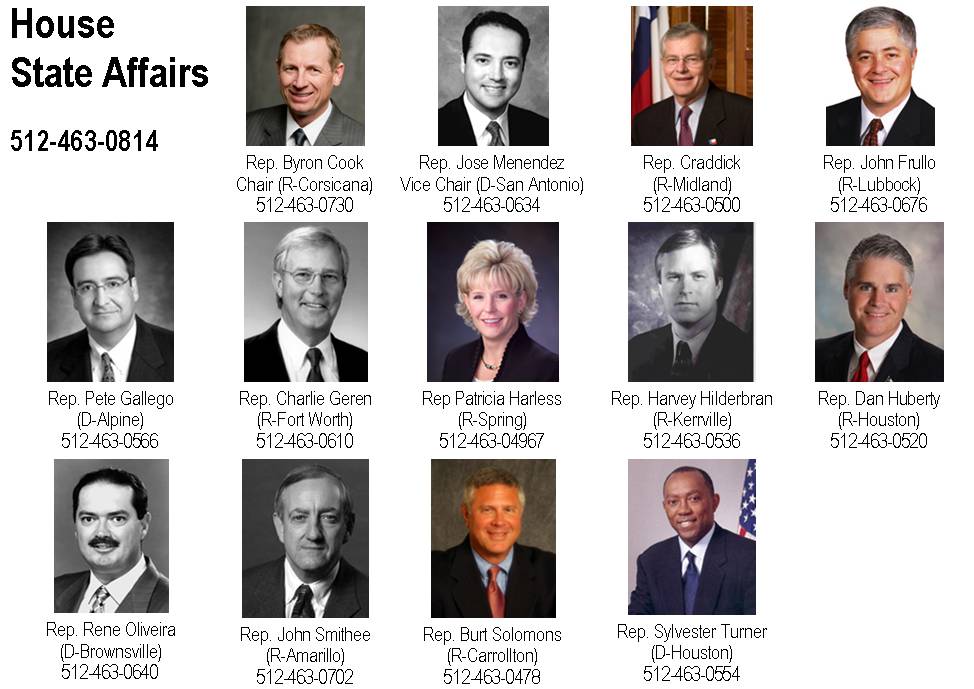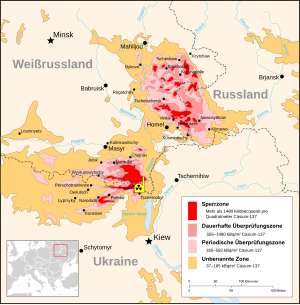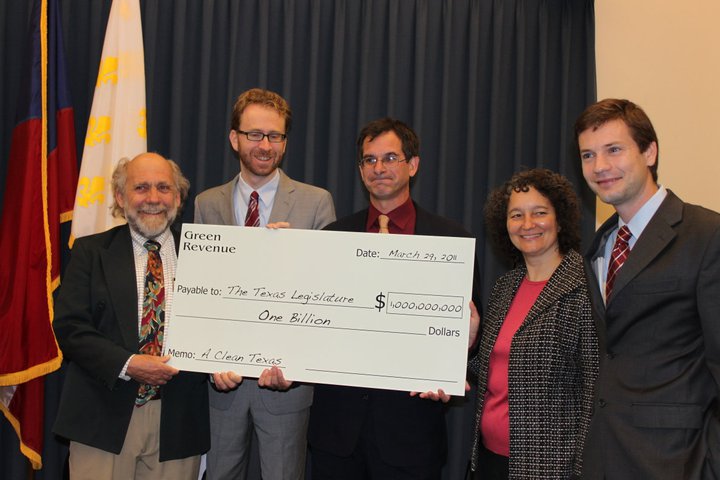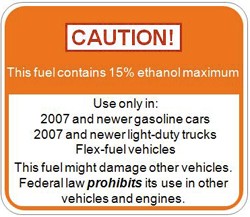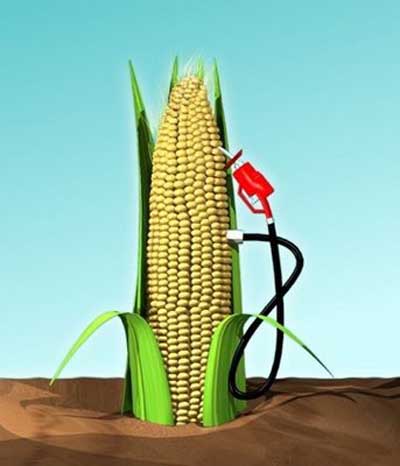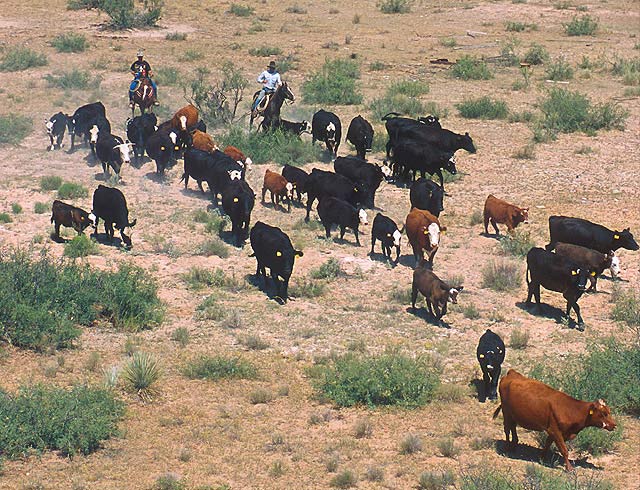SB 655 by Hegar, or the Texas Railroad Commission Sunset Bill, suffered a setback in the Senate today. (more…)
Posts Tagged ‘Texas’
Bill of the Day – SB 655
Posted in Air Quality, Sunset, tagged Oil and Gas Commission, Texas, Texas Commission on Environmental Quality, Texas Railroad Commission, United States Environmental Protection Agency on March 31, 2011 |
HB 2184 – moving forward, but now more questions
Posted in Nuclear, Radioactive Waste, tagged nuclear waste, Texas, Texas HB 2184, WCS on March 30, 2011 |
HB 2184 was voted out of the Texas House State Affairs Committee earlier today. HB 2184 is a piece of legislation that impacts how much, from where and how safely radioactive waste will be transported and stored at a West Texas site, and who will pay for it if something goes wrong.
While this bill has been moving rapidly through the Texas legislature, today when being reconsidered in State Affairs, a number of members offered amendments, none of which were agreeable to the bill’s author, Representative Tryon Lewis (R-Odessa) and none of which were amended to the bill that passed out of the committee. Nevertheless, the issues raised by the proposed amendments got the attention of several members of the committee. (more…)
HB 2184 – A Texas-Sized Plan for Nuclear Waste
Posted in Nuclear, Radiation, Radioactive Waste, tagged Harold Simmons, HB 2184, Nuclear, radioactive waste, Texas, WCS on March 30, 2011 |
HB 2184 will probably be voted out of the Texas House State Affairs Committee later this afternoon and so far, legislation that impacts how much, from where and how safely radioactive waste will be stored at a West Texas site is moving forward in favor of the private operator, giving them the power to negotiate private deals to import waste, make a gigantic profit and do it without any oversight by Texas regulatory agencies or the Texas Low-level Radioactive Waste Disposal Compact Commission.
According to an article in Mother Jones:
The compact allows him (Simmons) to get paid for burying other states’ nuclear trash while outsourcing much of the risk to Texas taxpayers. Though the state will receive a cut of disposal fees and $36 million to cover “corrective action” and “post-closure” expenses, it will have to bear any other cleanup costs on its own. According to a report by the Texas Sunset Advisory Commission: “Potential future contamination [from the waste] could not only have a severe impact to the environment and human health, but to the State, which bears the ultimate financial responsibility for compact waste disposal facility site.”
Click here to read the recent Mother Jones article on the history and issues with this site.
In light of the massive cleanup that faces Japan from the radiation that is flooding the area around the Fukushima Dai-ichi nuclear plant in the wake of its ongoing recovery efforts – seemingly contributed to by Japan’s failure to adequately regulate and reign in the runaway plant operator, is it in Texas’ best interest to just let this company have their way with us?
This bill will go next to the floor of the House and if it continues to move, as we expect it will given the money and influence behind it, on to a Senate committee. If we are to have any chance of making this bill more protective of the health, well-being and pocketbooks of regular Texans, regular Texans are going to have to let their lawmakers know they are concerned.
Japan losing/lost the race to save a reactor
Posted in Nuclear, Radiation, tagged Containment building, japan, Nuclear Power, Texas on March 30, 2011 |
Experts believe the radioactive core in reactor No. 2 at the crippled Fukushima nuclear power plant has melted through the bottom of its containment vessel and on to the concrete floor of the drywell below. This new development has raised fears of a major release of radiation at the site, and some nuclear industry experts are saying that while they don’t believe there is a danger of a Chernobyl-style catastrophe, it’s not going to be good news for the environment.
The major concern when molten fuel breaches a containment vessel is that it will react with the concrete floor of the drywell, releasing radioactive gases into the surrounding area. At Fukushima, the drywell has been flooded with seawater, which was a last ditch effort to cool any molten fuel that escapes from the reactor and reduce the amount of radioactive gas released.
The drywell is surrounded by a secondary steel-and-concrete structure designed to keep radioactive material from escaping into the environment. But an earlier hydrogen explosion at the reactor may have damaged this, and the detection of water outside the containment area that is highly radioactive and can only have come from the reactor core, is a good indication that the containment area has been breached.
In the meantime, countries around the world are reassessing their nuclear power programs. Britain has signaled that they could take a step back from nuclear power in the wake of the disaster. Germany ordered a temporary halt to the country’s seven oldest reactors, and China is considering scaling back their program.
France, which gets about 80 percent of its energy from atomic power and has been the poster child for nuclear power during the recent nuclear renaissance, wants threats from airplane crashes and terrorists excluded from safety checks planned on European reactors following the Fukushima nuclear accident. An interesting stance to take considering as recently as October of 2010, the French defense minister, Herve Morin told the French people that a terrorist threat exists, and could hit them at any moment.
At a minimum, governments should insist on two conditions for the future of the next generation of nuclear power plants: they have to be safe and they can not let the taxpayer be ripped off. This is a opportunity for investment into renewable energy sources such as solar, wind and energy storage that don’t have the potential to be really, really bad news for the environment and the people who live in that environment.
ABC World News Covers Bokoshe Coal Ash Dump
Posted in Coal, Good Government, Toxics, tagged abc, ash, Bokoshe, Coal, coal ash, coal plant, diane sawyer, ok, Oklahoma, Poteau, Public Citizen, Texas, world news on March 29, 2011 |
 World News with Diane Sawyer is airing a segment tonight on the Bokoshe fly-ash dump in Oklahoma. Public Citizen first worked with the people of Bokoshe and others throughout Oklahoma back in 2008 to oppose the expansion of the Shady Point coal plant in Poteau, OK – the plant that dumps its coal ash in Bokoshe. In one of the swiftest coal plant battles in US history the expansion was defeated, but the people of Bokoshe continue to deal with the problem of toxic coal-ash from the existing coal plant.
World News with Diane Sawyer is airing a segment tonight on the Bokoshe fly-ash dump in Oklahoma. Public Citizen first worked with the people of Bokoshe and others throughout Oklahoma back in 2008 to oppose the expansion of the Shady Point coal plant in Poteau, OK – the plant that dumps its coal ash in Bokoshe. In one of the swiftest coal plant battles in US history the expansion was defeated, but the people of Bokoshe continue to deal with the problem of toxic coal-ash from the existing coal plant.
The main problem is that coal ash is almost completely unregulated despite the fact that coal ash contains heavy, metallic neurotoxins like mercury and lead as well as other toxins like selenium, cadmium, arsenic, and can even contain radioactive isotopes. Though the EPA is attempting to initiate new, stricter regulations on this toxic and hazardous waste product there is a large push back from the coal industry to weaken these standards, and the implementation of those standards has been continually delayed. (more…)
Green Groups in Texas highlight new revenue streams
Posted in Air Quality, Campaign Finance, Consumers, Energy, Good Government, Texas Legislature, tagged 82nd legislature, Budget, budget deficit, green revenue, Texas, Texas Legislature on March 29, 2011 |
While Texas Legislators are furiously looking under every couch cushion to find more revenue this bienium, the Alliance for Clean Texas today highlighted a half dozen strategies that could help Texas close its $27 billion budget deficit.
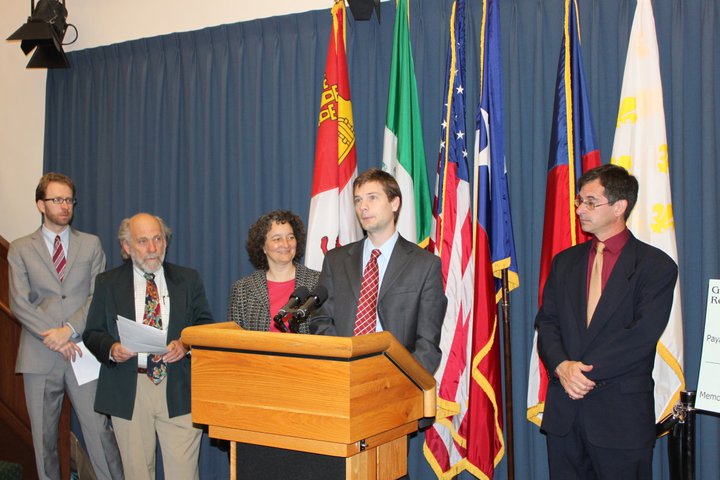
Alliance for Clean Texas Members (l to r) Luke Metzger, Environment Texas; Tom "Smitty" Smith, Public Citizen Texas; Robin Schnieder, Texas Campaign for the Environment; David Weinberg, Texas League of Conservation Voters; Cyrus Reed, Lone Star Chapter Sierra Club - photo courtesy TLCV
As lawmakers are loathe to talk about the dreaded “T” word (tax), groups like Public Citizen, Sierra Club, Texas Impact, Texas Campaign for the Environment, and Texas League of Conservation Voters, who sponsored this morning’s press conference, are offered alternative solutions to cutting needed education and health care services by raising $1 billion in revenue, while also protecting the environment.
These ideas include a severance tax, like oil and gas currently pay, for coal mined in the state and an import duty from out of state coal. Imported coal creates zero Texas jobs and pollutes the environment. If we’re going to ask oil and gas to pay a severance tax, we ought to ask coal to do the same.
Other ideas include making polluters pay the value they get from breaking clean air and water laws (ie, if by polluting you increase your profit by $15 million, you pay $15 million in fines), a surcharge on inefficient gas guzzlers and heavily polluting vehicles, and a recycling refund on bottles and cans (just clap your hands, just clap your hands!).
Cutting pollution would also mean fewer sick kids, fewer sick people in general. Children and the elderly are most at risk for pollution-caused or -aggravated disease AND they are the most likely to receive assistance from government health care services, so cutting pollution will save the state untold millions, if not billions. AND, since sick children are less likely to attend and be successful in school, cutting pollution also improves the quality of our schools– a triple value for our pollution-cutting dollar!
Combine this with former Lt. Governor Hobby calling on the state to end the tax credit on high-cost drilling operations (read: fracking) valued at $7.4 billion between 2004 and 2009. We had previously pointed out the hypocrisy of making the oil and gas industry’s culture of corporate welfare the only sacred cow in the budget due to their protected status resulting from all their campaign contributions.
Well, between the billions from the fracking exemption, the billion of Green revenue the ACT coalition mentioned… as they say in Washington, “A billion here, a billion there– pretty soon you’re talking about real money.”
State lawmakers who are serious about balancing the budget without brutalizing our schools, nursing homes, and hospitals ought to look carefully at these proposals and implement them. Even in the coldest, darkest winter, a farmer cannot start eating his own seed, as it will impact his ability to plant in the spring. Cutting necessary services to the bone and then sucking out the marrow will leave Texas cupboards bare, both literally and figuratively, as we struggle out of this recession.
The answer is simple- cut pollution, not teachers, doctors, and nursing home beds. Don’t let big polluters get their way, forcing grandma out onto the street and your kids into overcrowded classrooms.
The Texas House will be taking up HB 1, the budget, this Friday, and debate is expected to last all day and into the night. Texas Impact, one of our colleagues in ACT, along with several other groups are organizing a vigil for Texas’ future during the debate. RSVP on Facebook and we’ll see you there!
Look! A press release! From today’s press conference! (more…)
March 29th – Bill of the day!
Posted in Air Quality, tagged fracking, HB 3110, Texas on March 29, 2011 |
HB 3110 – Bad
by Craddick – Relating to air permitting requirements for certain oil and gas facilities. (more…)
News Roundup for March 30
Posted in News Roundup, tagged 81st Texas Legislature, Texas, texas progressive alliance on March 28, 2011 |
 The Texas Progressive Alliance is ready for another sports-related tourist infusion as it brings you this week’s blog roundup.
The Texas Progressive Alliance is ready for another sports-related tourist infusion as it brings you this week’s blog roundup.
If the goal of the 81st Texas Legislature and Governor Rick Perry is to stifle job creation in Texas for the next two years, then Off the Kuff says they’re knocking it out of the park.
Letters From Texas rolls its collective eyes about the word games played by the Republicans in charge, as they announce their Senate subcommittee to find “non-tax revenue.” Earth to Republicans: if we used to own it, but now the government owns it, it’s a tax.
Musings looks ahead to 2021 when the Texas economy is in the ditch and many thousands of children have had a substandard education. Do we solve the problem now, or wait until we go to the ballot box in Nov. 2012?
Lightseeker tries to put the present battle into perspective with his posting at TexasKaos, Connecting the dots: Killing Education, Killing Unions, Funding the Tea Partiers [revised]. Give it a look. The videos are worth the price of admission by themselves!
WCNews at Eye On Williamson has this to say about the austerity budget that the House passed out of committee this week, House Appropriations passes budget – tea party blamed for cuts.
In the latest post regarding the poll he’s conducting on the mortgage interest tax deduction, PDiddie at Brains and Eggs explains why he has never owned a home.
CouldBeTrue of South Texas Chisme warns that republicans are near their goal of killing public education for k-12 and at the university level.
Neil at Texas Liberal apologized for ever having voted for Houston City Councilmember C.O. Bradford for any public office. Neil feels that voting for Mr. Bradford was one of the worst ballot box mistakes he has ever made.
refinish69 is ever amazed by the stupidity of the Texas Ledge. It is the gift that keeps on giving. Case in point is Rep. David Simpson’s Don’t Touch My Junk Bill.
This week, McBlogger takes a look at what austerity will do to Texas.
EPA’s Partial E15 Waiver: More ethanol?
Posted in Air Quality, Efficiency, Renewables, Transportation, tagged Air Quality, Energy Efficiency, EPA, Public Citizen, Renewables, Texas, United States Environmental Protection Agency on March 27, 2011 |
Over the past couple of years, there has been a heated debate involving the potential EPA implementation of allowing a greater percentage of ethanol in gasoline. The current volume percentage of ethanol allowed is 10% for vehicles made between the years 2001 and 2006. Recently, the EPA has been discussing the approval of what is known as E15 (15 volume percent ethanol blended with gasoline), and in October of 2010, the request was waived for the implementation of E15 to be allowed in vehicles made in 2007 and later. Taking these two decisions into consideration, this now allows for E15 use in vehicle makes 2001 and newer, lighter-make vehicles into the commerce division. Studies have shown that E15 is likely to result in somewhat lower evaporative emissions compared to fuel currently sold in much of the country (E10) as a result of the lower volatility of E15 under the partial waiver conditions. There are currently two conditions that must be met. These conditions take into consideration the concerns of the community. One condition of the waiver involves the mitigation of the possibility of citizens misfueling E15 in the wrong vehicles. The other condition addresses the fuel and quality of the ethanol.
On January 21, 2011, the EPA did in fact grant a partial waiver for E15 for use in MY2001-2006 light-duty motor vehicles. These decisions were based on test results provided by the U.S. Department of Energy (DOE) and other information regarding the potential effect of E15 on vehicle emissions. Taken together, the two actions allow, but do not require, E15 to be introduced into commerce for use in MY2001 and newer light-duty motor vehicles if conditions for mitigating misfueling and ensuring fuel quality are met. The EPA is still in the process of completing work on regulations that would provide a more practical means of meeting the conditions.
These new waivers implemented earlier this year by the EPA have cattle ranchers in an uproar as well. But what could the Texas livestock industry possibly have to do with the newest ethanol implementations? According to the Texas and Southwestern Cattle Raisers Association (TSCRA), the new 50% increase in ethanol-gasoline allowance, is detrimental to the costs of their livestock production. The TSCRA claim that such a dramatic increase in ethanol permittance will have serious negative repercussions for their cattle ranches. A statement made by TSCRA president and fellow rancher, Dave Scott, indicated that these high levels of corn based ethanol are one of the most influential factors in driving price increases in corn products, including the feed for cattle. This is a clear indication of the dangers we create once we begin to place our food and fuel in competition against one another. In 2008, according to the US Department of Agriculture, feed for livestock reached its record high at $45.2 billion. This was an increase of more than $7 billion from 2007. With the cost of feed for livestock and newer, higher levels of ethanol being so intertwined with each other, we will only be seeing an even more dramatic rise in the cost of feed for cattle production…and more unhappy ranchers.
Our nation’s food supply and methods of transportation must find a way to compromise and divert their routes of competition elsewhere because both are at serious risk in the future.
Wind and solar may be competitive with coal without aid in a decade, Chu says
Posted in Global Warming, Renewables, tagged Coal, Energy, solar power, Texas, United States Secretary of Energy, wind on March 26, 2011 |
According to Bloomberg, U.S. Energy Secretary Steven Chu is calling for a national energy policy that will promote the use of clean-energy technologies. This would include U.S. investment in advanced battery technologies, biofuels and efficient high-voltage transmission systems. Secretary Chu went on to say they are expecting wind and solar power may be able to compete with fossil fuels, without aid from government subsidies, within the next decade, rather than the three decades the U.S. Department of Energy was projecting earlier.
News Roundup for March 26, 2011
Posted in News Roundup, tagged bay area houston, City Council elections, Galveston County Republican Party, Texas, texas capitol, texas progressive alliance on March 26, 2011 |
The Texas Progressive Alliance’s brackets are still in good shape as it brings you this week’s blog roundup.
WhosPlayin has been focused on City Council elections and the criminal records of two of the candidates, each of whom has assault convictions, and each of whom lied on their ballot application.
Off the Kuff discusses the budget deal that allows for Rainy Day funds to be used to close the current biennium’s shortfall.
DosCentavos compares theMexican shootin’ Missouri legislator and the goings on at the Texas Capitol; and tell us what Dems should be doing.
Bay Area Houston notes When the Galveston County Republican Party Chair slept with teabaggers he woke up with a bad taste in his mouth…..and no job.
Are you in favor of preserving the mortgage interest income tax deduction, or do you favor phasing it out for larger, more expensive homes and/or wealthier taxpayers — or eliminating it altogether? PDiddie wants your opinion at Brains and Eggs.
Musings gives an update on the ground perspective of why schools need more support staff, not less, in order to ensure student success with the new, more rigorous curriculum and testing mandated by the Legislature and SBOE.
WCNews at Eye On Williamson makes clear that the recent “drama” surrounding whether to spend some of the Rainy Day Fund was done for political cover, better known as The Show.
This week, McBlogger takes a look at two crazy people who are, unbelievably, elected officials.
refinish69 is disgusted and dismayed at the stupidity that is the Texas Ledge. Nothing like a Clean Crapper Bill or protecting the ignorant to make the State of Texas proud.
CouldBeTrue of South Texas Chisme suspects that Republican hate against Muslims resulted in fires at a Houston Mosque. Republicans have sliced and diced the American public every which way – women, people of color, gays, teachers, nurses, Jews, Muslims and who knows what else. Wisconsin has woken up. Lets hope the rest of America soon follows.
At TexasKaos, lightseeker is Shocked! Shocked! at the new “edited” video that has hit the web. Check out The Media Fail Us Again- of NPR and Edited Videos.
Neil at Texas Liberal came across an example of extreme government direction of our lives.
March 25th – Still the bill of the day!
Posted in Global Warming, tagged radioactive waste, TCEQ, Texas, Tyron Lewis on March 25, 2011 |
The Texas Livestock Industry: Are our cows at risk?
Posted in Climate Change, Global Warming, tagged Carbon Dioxide, climate change, Global Warming, Public Citizen, public citizen texas, Texas on March 25, 2011 |
Americans tend to think of climate change as a ‘down the road’ future phenomenon. But the fact of the matter is that although the world isn’t coming to an end tomorrow, we are being impacted by climate change, and much more than we may think. We may feel like we don’t know anyone dealing with the repercussions of climate change, but the effects are closer than we think. In fact, think of that cattle ranch down the road, it’s probably dealing with the effects of climate change, like drought, and extreme heat waves, and most of us don’t even know it.
Climate change can affect livestock, especially here in Texas, aka the cattle country. This occurs principally through variations in appetite, and distribution in energy between maintenance and growth. The potential for disease incidence becomes increased as well. Does this become worth the cost for those who raise cattle? Speaking from personal experience, I can tell you that it is not.
My family has owned a working cattle ranch for as long as I can remember. The cattle were left to openly graze through the pastures and wander about the ranch, to the fishing pond and beyond. I can remember countless times driving in only to be stopped by a cow standing blatantly in the middle of the road munching on some mesquite. A few months ago, the decision was made to slowly get rid of the cattle on the ranch. Why you ask? For one, the expense it costs to maintain such a production is becoming more than the profit. The cattle are eating everything in sight, not allowing the wild game to acquire enough to eat to reach their full mass potential. This essentially decreases the amount of hunting leases the ranch receives, since the game isn’t at its full potential, size wise. As long as the cows continue to eat, they’ll also continue to erode everything in sight, especially since they’ve been grazing for so long out in the pastures. And specifically speaking of extreme heat waves, I can remember a few times in my lifetime when we’ve had cows die right in the pastures as a result of the brutal Texas heat. That seems to be a pretty clear indicator of the serious catastrophic risks that the effects of warming have on the hard-working cattle ranchers. (more…)
